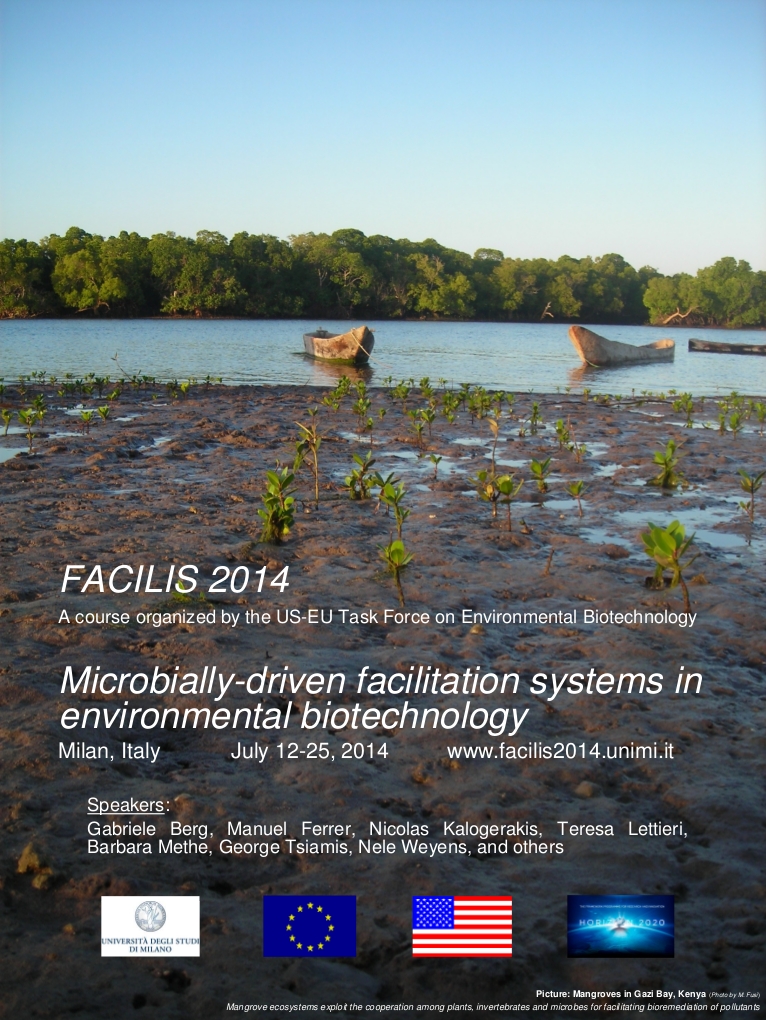Facilis 2014
Modern conservation and reclamation environmental processes strongly rely on biological organisms for addressing the environment clean up or remediation. For instance and among many others, wastewater treatments, improved plant cultivation, enhanced biodegradation of natural or xenobiotic pollutants, soil quality management, improved water usage, facilitated nutrient to energy conversion and enhanced energy recovery from biomasses, exploit the use of biological organisms thriving in the different systems. In all these processes microorganisms play major roles determining the success of the process and contributing to the maintenance of the ecosystem services.
The enhancement of all these process in a biotechnological perspective can be framed under the “facilitation” concept in which different factors can be used for promoting the efficiency of the process. In this perspective microorganisms can be the “facilitators” in the system enhancing the efficiency of the process, for instance in the improved plant cultivation or in the nutrient to energy conversion in the gut systems, or, where they are the major biotechnological actors, they can be helped by other biotic or non-biotic factors in improving the process efficiency.
The course aims at examining the role of facilitation processes in environmental biotechnology, looking to the microbial side both from a “facilitator perspective”, where the microorganisms are the facilitators themselves, and from a “facilitated perspective” where microorganisms, as the main process actors, improve their potential and efficiency by benefiting from other biotic or non-biotic “facilitators”.
The course will focus on this duality by means of a series of lectures by international renown experts that emphasize the role of microorganisms in many important environmental processes and the ways that can be used for enhancing the microbial activities by external facilitator systems.
This will allow to analyze and develop i) the concept of “complex systems” in which all the components of the system are exploited for the success of an environmental service, ii) the importance of symbiosis and organism interactions to sustain a given ecosystem.
